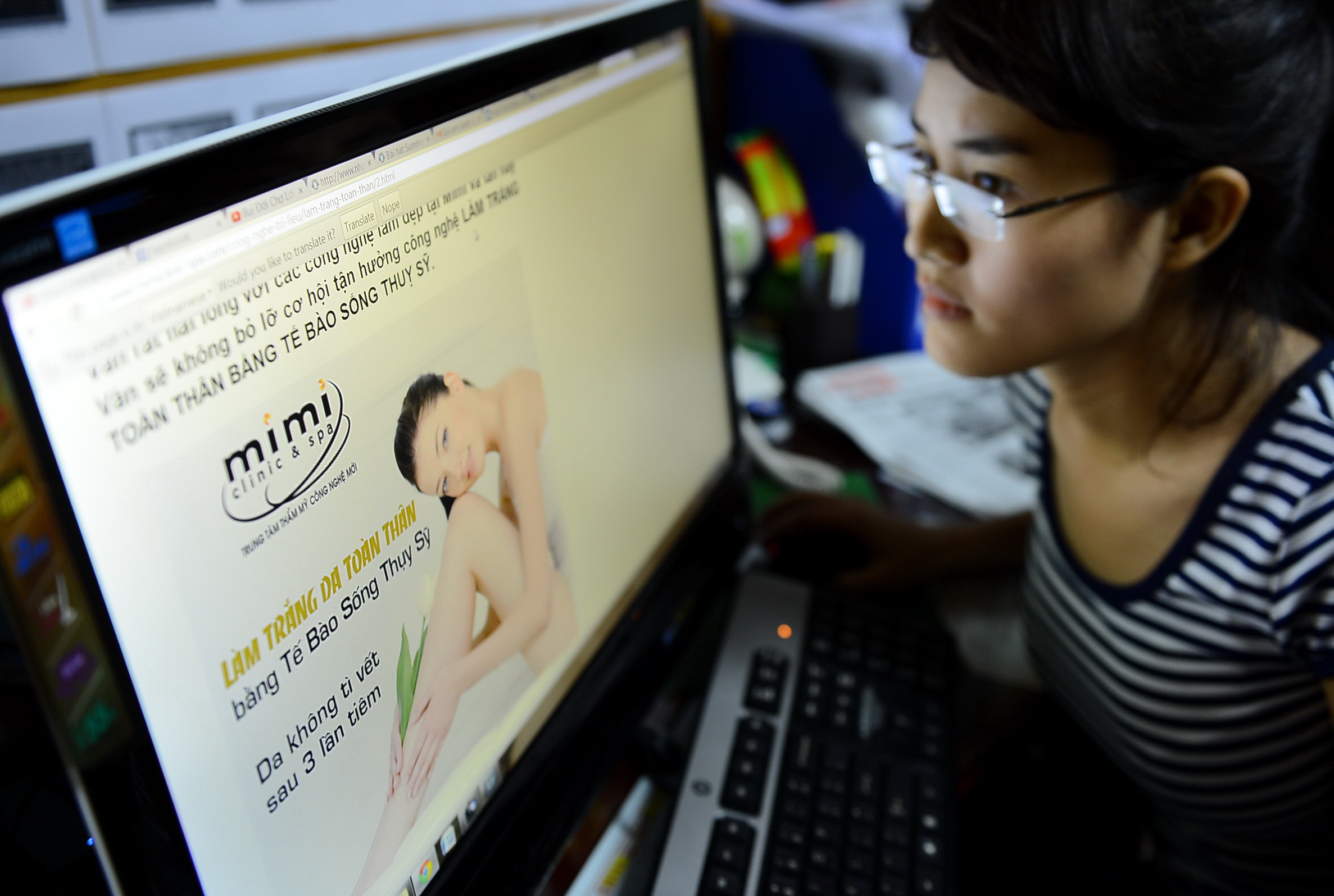Health inspectors in Hanoi have warned that many beauty salons boast in their advertisements that they can provide skin whitening services using stem cells from abroad, but what they have actually provided clients are only normal skin care services using common cosmetics.
>> Be careful with stem cell therapy for skin The warning was released after the Hanoi Health Department's Inspectorate conducted inspections at some beauty shops including Mimi Clinic’s Hanoi Branch on Trich Sai Street, on July 5. Deputy Chief Inspector of the Hanoi Health Department Dang Thi Hoa said that the clinic branch has boastfully advertized about its skin whitening therapy using stem cells from Switzerland despite the fact that such a service has yet to be allowed in Vietnam. According to the brand’s advertisements, by paying a price ranging from VND105-210 million (nearly US$10,000), a woman can receive therapy in which a specific stem cell is injected into their skin to replace the old layer of skin with a new one that is whiter, fresher, and younger. Nguyen Thi Bich Phuong, the representative of the branch at the time of inspection, told inspectors that the clinic has used botanic stem cells in skin therapies that have provided to clients. However, Phuong failed to show such stem cells to inspectors. She also failed to present a license for using stem cells or any documents about their origin. On examining the branch’s invoices, inspectors found out that no stem cells were indicated in them. These invoices only showed common cosmetics and vitamin supplements for skin care that can be found at any beauty salons. This means that no stem cells had been used. "It is extravagant for the clinic to charge clients up to VND210 million for what so-called “skin whitening therapy using stem cells”, the Inspectorate said. At another beauty salon, Tra My Clinic & Spa on Mai Hac De Street, inspectors caught it launching misleading and exaggerating advertisements. The facility boasts that it can treat skin with gold at a cost of VND15 million ($720), regenerate skin with pearl at an expense of VND25 million ($1,200), or handling skin with diamond, but when asked to prove that the clinic had used precious material in their therapies, the clinic’s representative failed to do so.Disallowed therapies
Luong Ngoc Khue, head of the Medical Examination and Treatment Department, said that health facilities which provide unlicensed services for their customers or provide services beyond their actual ability and conditions must be strictly punished.
He affirmed that the use of stem cells to whiten or rejuvenate skin, as well as therapies for breast enlargement, is not yet allowed in Vietnam.
Therefore, all health facilities, including hospitals, must prevent such operations to avoid possible complications.
To date, the Health Ministry has only allowed Bach Mai Hospital, Viet Duc Hospital, the Central Hematology and Blood Transfusion Institute, and the Ho Chi Minh Hematology and Blood Transfusion Institute to use stem cell technology in treating knee joint degeneration, some cardiovascular diseases and cancers, Dr Khue said.
Dr. Mai Trong Khoa, deputy director of Hanoi-based Bach Mai Hospital, where the stem cell technology is being used for treatment of knee joint diseases, called for caution in using genetic technologies, including stem cells, on humans.
He warned that “if stem cells are not properly controlled when they are implanted or injected into the human body, they may cause malignant diseases.”






















































